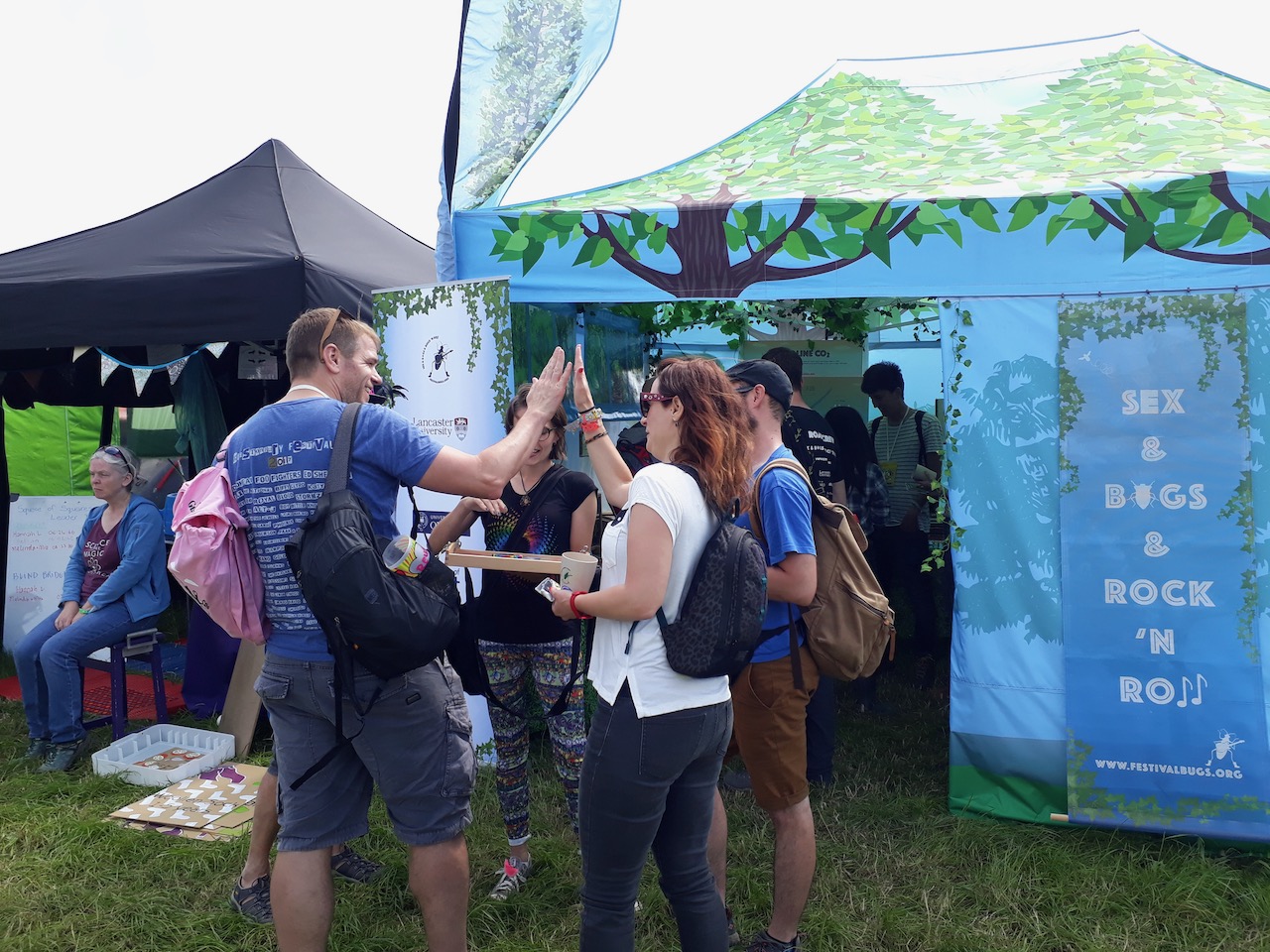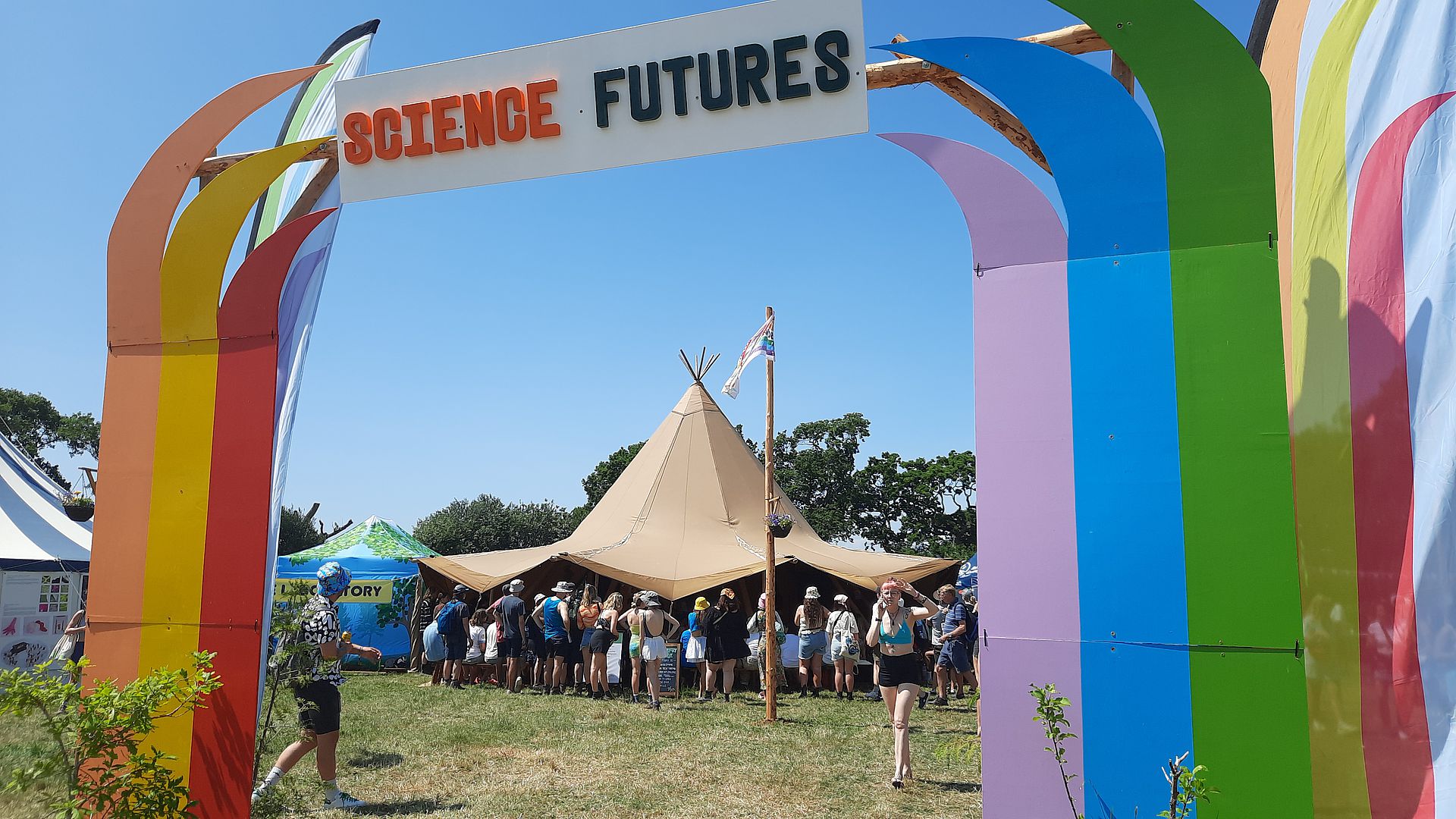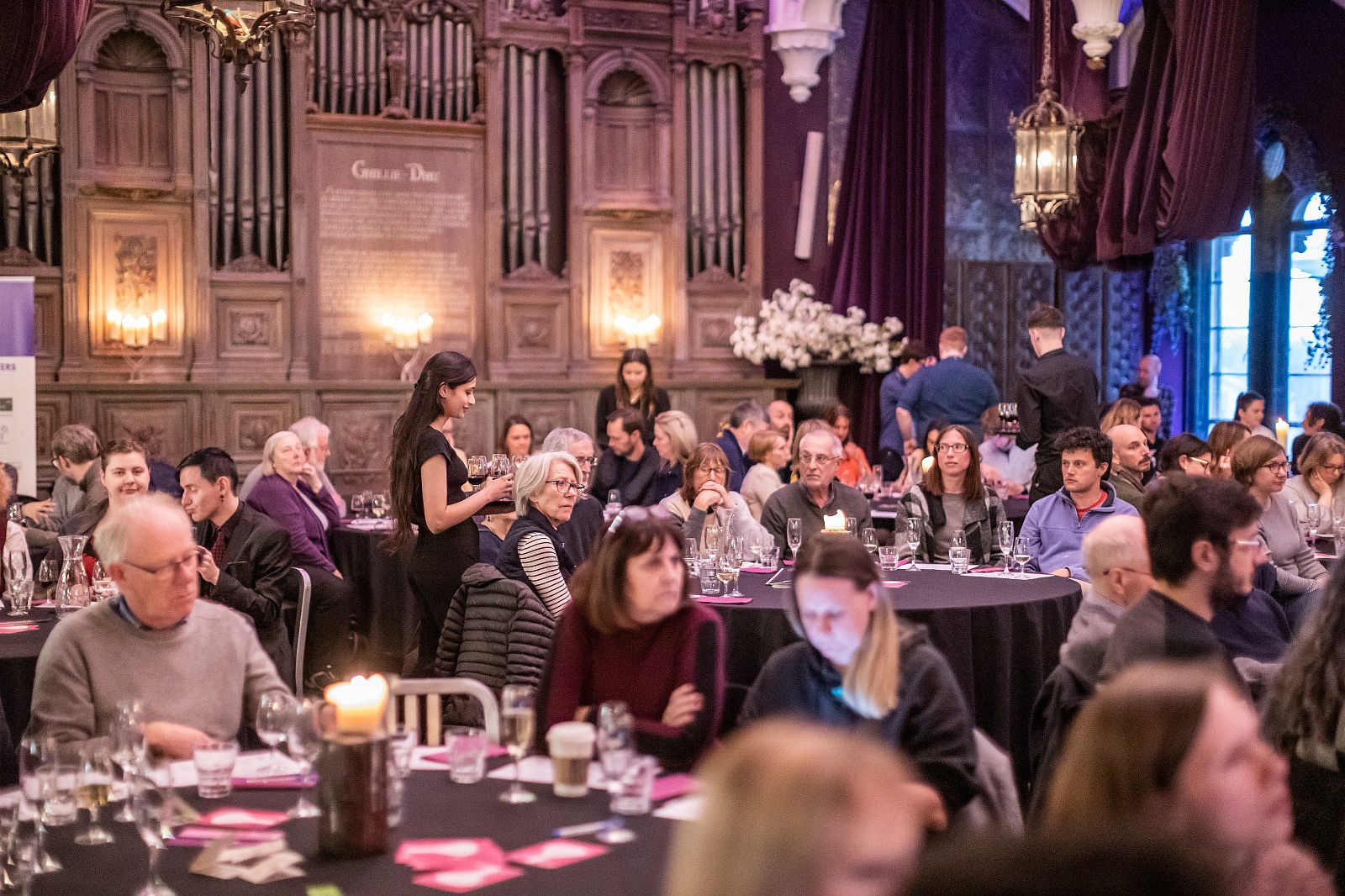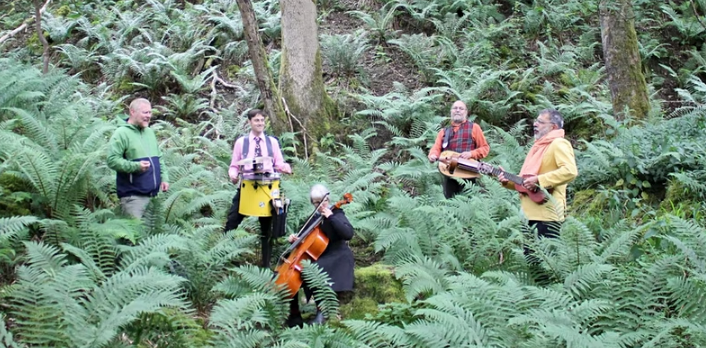Science for all!
I believe science should be accessible to everyone, and that research can benefit hugely from a two-way exchange with society. I personally enjoy finding ways to 'translate' science so it can be shared with all sectors of society, and I teach several workshops to support researchers who wish to better communicate their work with colleagues, across disciplines, and with members of the public.
Public engagement projects (selection)
Sex & Bugs & Rock ‘n Roll was a project to bring environmental science to music festivals. The concept was simple: our research is fuelled by curiosity, so recreated that spirit by turning interesting research into entertaining activities at a lively and welcoming festival stall. Anyone was welcome to drop by, chat, ask questions, or just take a look around and try their hand at a game or two.
Originally conceived as a one-off event, the project was so successful that it ran for 10 years from 2013-2022. During this time, we engaged over 25,000 festival-goers at 21 events.


Science Futures
Based on the success of Sex & Bugs & Rock 'n Roll, I was invited to curate a new area dedicated to science within the Green Futures Field at Glastonbury Festival in the UK. Although we started with a fairly modest set-up, the area now features 8-10 science stalls, an exhibitor tent (the Futurarium), outdoor art installations, and a full stage programme dedicated to interactive and alternative science communication (including music, demonstrations, and stand-up comedy).
Tasting Climate Change
Climate change is the biggest challenge we face, and yet it is hard for us to comprehend the consequences of climate change for our everyday lives. I devised Tasting Climate Change as an event in which guests experience the impacts of climate change first-hand - via their tastebuds. Tasting Climate Change demonstrates how climate change affects what we eat and drink, using wine production as a case study. Bite-sized science talks accompany wine-tastings that highlight the various ways in which climate changes will affect the taste of wines, the grape varieties we can grow, and the cost of production. The event provides a convivial setting for discussions around climate change, while demonstrating an entirely different way of communicating research.


I was invited by the wonderful musicians Deep Cabaret to be part of this immersive, outdoor performance. beWilder is an intimate music-led forest walk combining songs and ecological stories. I guided audiences on a walk through the woods in small groups, explaining the many unseen processes around them that make forests so important as a wildlife habitat, and so beneficial to humans. The walk was interspersed with live performances of ecologically themed songs and atmospheric music inspired by the location.
Science Communication Workshops and Resources
Workshops
I love teaching science communication skills because they are so incredibly useful! My workshops are fun and highly interactive, with group exercises and discussions.
Boost Your Scientific Writing Skills takes a different look at research papers, focussing on the purpose of each section and the way readers process information. I demonstrate how to structure the text using story-telling techniques to highlight key messages and make papers more accessible. I also provide lots of tips and tricks to make the writing process easier - especially for those writing in English as a foreign language.
Navigating Peer-Review and the Publication Process covers best-practices in peer-review, responding to reviewers, and authorship decisions. The workshop also covers other publication-related topics such as choosing a target journal, writing cover letters, appealing decisions, and dealing with authorship issues.
Public Engagement 101 takes participants through the absolute basic principles of engaging the public with research, all the way through to designing and developing activities for different events and settings. The workshop covers
The Anatomy of a Great Presentation focusses on the three Cs (convincing, confident, creative) to present outstanding talks and posters at conferences and other scientific events, i.e. structuring content, developing presentation style (including body language), and applying effective visual design criteria.
Resources
I have authored several articles on science writing skills for Functional Ecology, which can are all free to download:
Sayer EJ (2019) The essentials of effective scientific writing – a revised alternative guide for authors. Functional Ecology, 33:1576–1579.
Sayer EJ & Ferry LA (2023) Demonstrating a significant advance to the field: an essential criterion for publication in Functional Ecology. Functional Ecology, 37:2980-2983.
Sayer EJ (2018) The Anatomy of an Excellent Review Paper. Functional Ecology, 32:2278-2281.
